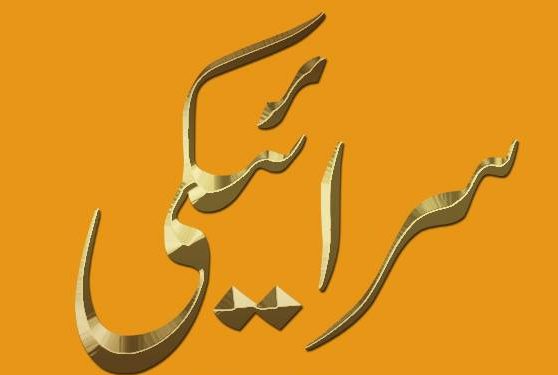
Saraikis were one of the largest groups to migrate during this time, mostly from regions near Multan, Alipur and Dera Ghazi Khan.
By Isha Nagpal
Sitting at the rooftop of my maternal home, I was sipping chai and listening to my Nani speak on the phone “meku bahu nidra aandi pai ae” (I am very sleepy). She was speaking in a language called Saraiki, previously known as Multani. I felt proud to be able to understand the dialect and her accent well but as she went on with her conversation, I realized how little I understood a language that my grandparents brought with them when they migrated to India during partition. This was a language that they still spoke with their children and relatives but none of their grandchildren understood well. Languages seem to have a funny way of eluding entire generations very easily. But this was a language that had stood the test of time and had endured in the face of immense tragedy only to be slowly forgotten by the generations.
The Saraiki language originated in the Sindh area of Pakistan.
The Saraiki language originated in the Sindh area of Pakistan. Maqbool Hassan Gilani has extensively studied the history of the language and has written about how it originated. The language developed with the Aryans in the Sindh region and then mingling with Arab and Persian rulers and their languages. The name ‘Saraiki’ is linked to the language spoken in the upper Sindh known as Saraiki, Saro meaning ‘upper’. While some researchers also say that the language can be traced to eastern regions of Sindh where it was largely spoken. In the field of academics, there are still many confusions and overlaps in the definition of the language and its related dialects like Multani and Bahawalpuri. Geographical demarcations pertaining to origin of the language remain highly controversial among Pakistani linguists.
Saraiki speakers went through a catastrophic situation during the partition of India and Pakistan. The Saraikis were one of the largest groups to migrate during this time, mostly from regions near Multan, Alipur and Dera Ghazi Khan. While some walked and migrated to places that were unknown to them, other Saraiki speakers who stayed back saw their villages and cities in distraught and lathered with destruction. The violence on both sides affected an innumerably large number of people who had formed into communities due their linguistic similarities and despite religious differences. This trauma has inevitably lived with entire communities and their generations to come. This has also led to the dilution of this linguistic identity with fewer percentages of people speaking the language with every new generation. In Pakistan, however, there have been constant debates regarding assigning a separate identity to Saraiki speakers rather than just dismissing it as dialect of the Punjabi language mainly due to the vast differences in both the languages. This has brought the needs and demands of the Saraikis to the forefront.
The Saraiki speakers of India find themselves dispersed throughout the country in much smaller communities.
The Saraiki speakers of India find themselves dispersed throughout the country in much smaller communities. They currently reside in North Indian states of Haryana, Delhi, Rajasthan and Uttar Pradesh, while many Saraiki speaking Muslims also migrated to parts of Andhra Pradesh during partition and continue to build a community there. The dispersion of the community did leave it dismayed and unable to build strong ties like before but, the smaller communities that migrated to India did not deplete, rather kept their traditions, especially the language, alive. It is in the last few decades that Saraiki, like many other regional Indian languages, has started diminishing from our vocabulary. This can be attributed to the politics of languages and the interplay of a hierarchy of languages that is very evident in our societies. Just like hierarchies in in caste and class systems, there also exists an almost invisible hierarchy of languages in this capitalistic world. While some languages, especially English, are kept on a pedestal because of their international value; others, like Saraiki, are downgraded due to their diminishing importance.

It, then, becomes our responsibility as products of our languages and culture, to try and keep parts of them alive while we struggle to form our own identity. In this fast-paced world when we’re all trying to make ourselves into more valuable individuals and learning new languages, one thing that can help us connect to our past is language. Without knowing our ancestors’ language, it becomes harder to comprehend their culture and form our own cultural identity. This then drives people farther away from these languages increasing the gap between us and our history. Saraiki is one example of many such cultures who have gone through unfortunate circumstances and have diminished with time, leading to their extinction. While translation offers a great way to preserve such cultures, there is only so far one can go with capturing the essence of a language in another. Therefore, it is imperative to celebrate these languages in their own registers and not discard them in order to keep cultures alive and our heritage venerated.
________________
Courtesy: Dhaara Magazine (Published on January 25, 2021)